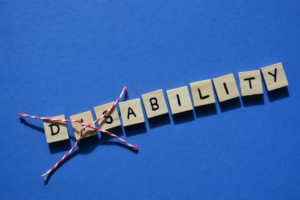
Two mental health experts have joined forces to make an uplifting podcast about well-being and personal growth. We use this show to share fresh and sometimes eye-opening ideas, helping listeners create a more fulfilling life. We’re not pushing any one viewpoint – instead, we’ll bring in guests from all walks of life to expand our understanding of the world. Come along with us as we explore different outlooks together.
Sheree and AJ discuss how to argue effectively and reach resolutions in this insightful episode. They share practical tips for managing emotions during conflicts and emphasize the importance of approaching disagreements with curiosity and openness.

We’ve all been there – caught in heated arguments where emotions run high and resolution seems impossible. Understanding effective conflict resolution starts with recognizing that arguments aren’t inherently negative. When approached correctly, they can lead to growth and deeper understanding. As relationship expert AJ explains, “Truth itself is very contextual, and we must approach conflicts with this understanding.
The Foundation: Functionality in Arguments
The key to successful conflict resolution lies in understanding the functionality of arguments. Rather than viewing conflicts as problems to eliminate, we should see them as opportunities for:
- Learning new perspectives
- Growing relationships
- Finding common ground
- Developing better solutions
- Building stronger connections
- Enhancing communication skills
- Creating mutual understanding
The Power of Soft Starts
How you begin an argument significantly impacts its outcome. When approaching a conflict, consider these two contrasting approaches:
Hard Start:
- Making absolute statements
- Using accusatory language
- Presenting opinions as facts
- Showing unwillingness to listen
- Approaching with predetermined conclusions
- Displaying defensive body language
- Using confrontational tone
Soft Start:
- Using open-ended questions
- Showing genuine curiosity
- Expressing willingness to understand
- Maintaining a learning mindset
- Creating safe space for dialogue
- Using calibrated questions
- Demonstrating empathy

Managing Uncomfortable Feelings
A crucial aspect of conflict resolution involves handling uncomfortable emotions that arise during arguments. Here’s how:
- Acknowledge the discomfort without fighting it
- Take three deep breaths to anchor yourself
- Remember your intention for the conversation
- Bring the uncomfortable feelings along instead of trying to eliminate them
- Name and acknowledge your emotions
- Stay present in the moment
- Focus on external reality rather than internal dialogue
Key Principles for Effective Conflict Resolution
Begin with the end in mind
- Set clear intentions before engaging
- Know what outcome you’re seeking
- Be prepared to adjust your expectations
- Understand that resolution doesn’t always mean agreement
- Create realistic goals for the conversation
Avoid absolute language
- Eliminate words like “always” and “never”
- Use specific examples instead of generalizations
- Focus on current situations rather than past patterns
- Choose words that leave room for dialogue
- Maintain flexibility in your statements
Practice active listening
- Seek first to understand
- Ask clarifying questions
- Show genuine interest in other perspectives
- Reflect back what you’ve heard
- Validate others’ experiences
- Stay present in the conversation

The Role of Context in Conflict Resolution
Understanding context is vital for effective conflict resolution. Remember:
- Truth can be contextual
- Solutions vary based on circumstances
- Different perspectives can simultaneously be valid
- Cultural factors influence communication
- Personal histories affect reactions
- Environmental factors impact interactions
Practical Steps for Resolution
- Take three deep breaths before responding
- Acknowledge your emotions without letting them control you
- Stay curious about the other person’s perspective
- Focus on understanding rather than winning
- Remember that resolution doesn’t always mean agreement
- Practice reflective listening
- Use “I” statements instead of accusations
- Create space for mutual understanding
- Acknowledge areas of agreement
- Look for win-win solutions
The Science Behind Effective Resolution
Research shows that successful conflict resolution relies heavily on our ability to manage our physiological responses. When we feel threatened during an argument, our amygdala activates the fight-flight-freeze response. By using techniques like deep breathing and mindful awareness, we can better regulate these responses and maintain productive dialogue.
Moving Forward
Successful conflict resolution requires practice and patience. “The key is coming into any debate with the right intention,” explains AJ, emphasizing that we must be prepared for outcomes different from what we initially hoped for.
Remember these core principles:
- Maintain curiosity throughout the conversation
- Bring uncomfortable feelings along instead of fighting them
- Focus on functionality rather than being right
- Stay anchored in the present moment
- Practice emotional awareness
- Cultivate understanding
- Build resolution skills over time
By approaching conflicts with these strategies, you can transform arguments from sources of stress into opportunities for growth and understanding. The goal isn’t to eliminate disagreements but to handle them productively and maintain healthy relationships through effective conflict resolution. As we develop these skills, we create stronger, more resilient relationships capable of weathering disagreements while maintaining connection and respect.




